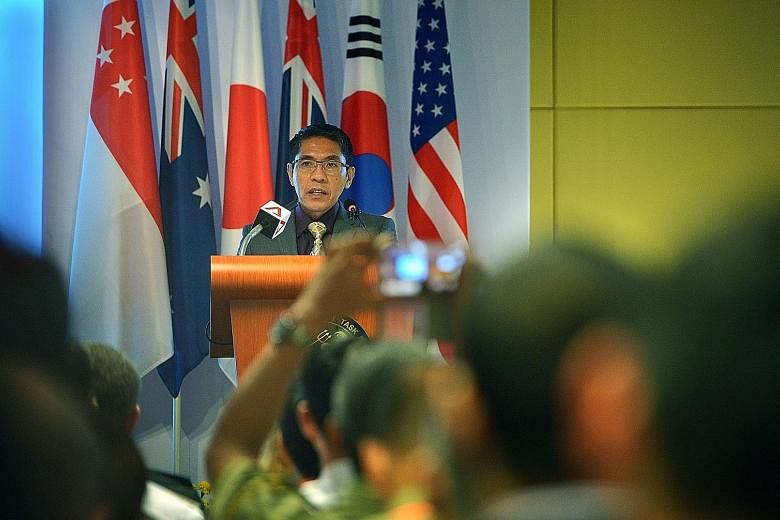A rogue merchant vessel suspected of smuggling materials used to make weapons of mass destruction is discovered in the South China Sea, prompting a multinational task force to track and intercept it.
Board-and-search teams - using rigid-hull inflatable boats and Super Puma helicopters - then storm the ship and check for the materials.
This is one of the scenarios that will be played out in a four-day maritime security exercise codenamed Deep Sabre which began in Singapore yesterday.
More than 800 personnel from 21 countries - including Australia, Japan, Russia and the United States - will be involved in a series of shore and sea activities to address threats such as the spread of weapons of mass destruction.
Singapore previously hosted the exercise in 2005 and 2009.
For the first time, the Information Fusion Centre, which facilitates information sharing and collaboration between international partners, will feature in the exercise.
The centre, established in 2009, is situated at Changi Naval Base. In 2014, it supported the search-and- locate operations for the missing Malaysia Airlines Flight MH370, by asking its network of shipping firms to report any debris sightings.
Besides the navy and air force, participants from Singapore include officers from the Singapore Civil Defence Force, Singapore Customs and the Singapore Armed Forces' Chemical, Biological, Radiological and Explosives Defence Group.
Senior Minister of State for Defence and Foreign Affairs Maliki Osman, who officiated the exercise's opening ceremony at the Changi Command and Control Centre yesterday, said: "As a small country located astride key sea lines of communication, Singapore recognises that it has an important role to play in the common fight against the proliferation of (weapons of mass destruction)."
He said that with the growth of global trade and information flows, illicit trade can now be easily masked using legitimate channels.
A wide range of goods today which have legitimate applications can be used as components to manufacture weapons of mass destruction, he explained. "These dual-use goods are both difficult to track and challenging to prove whether they are intended for illicit use."
Dr Maliki added: "If rogue groups get their hands on weapons of mass destruction, the impact on our security - at the international, regional and national levels - would be devastating."


